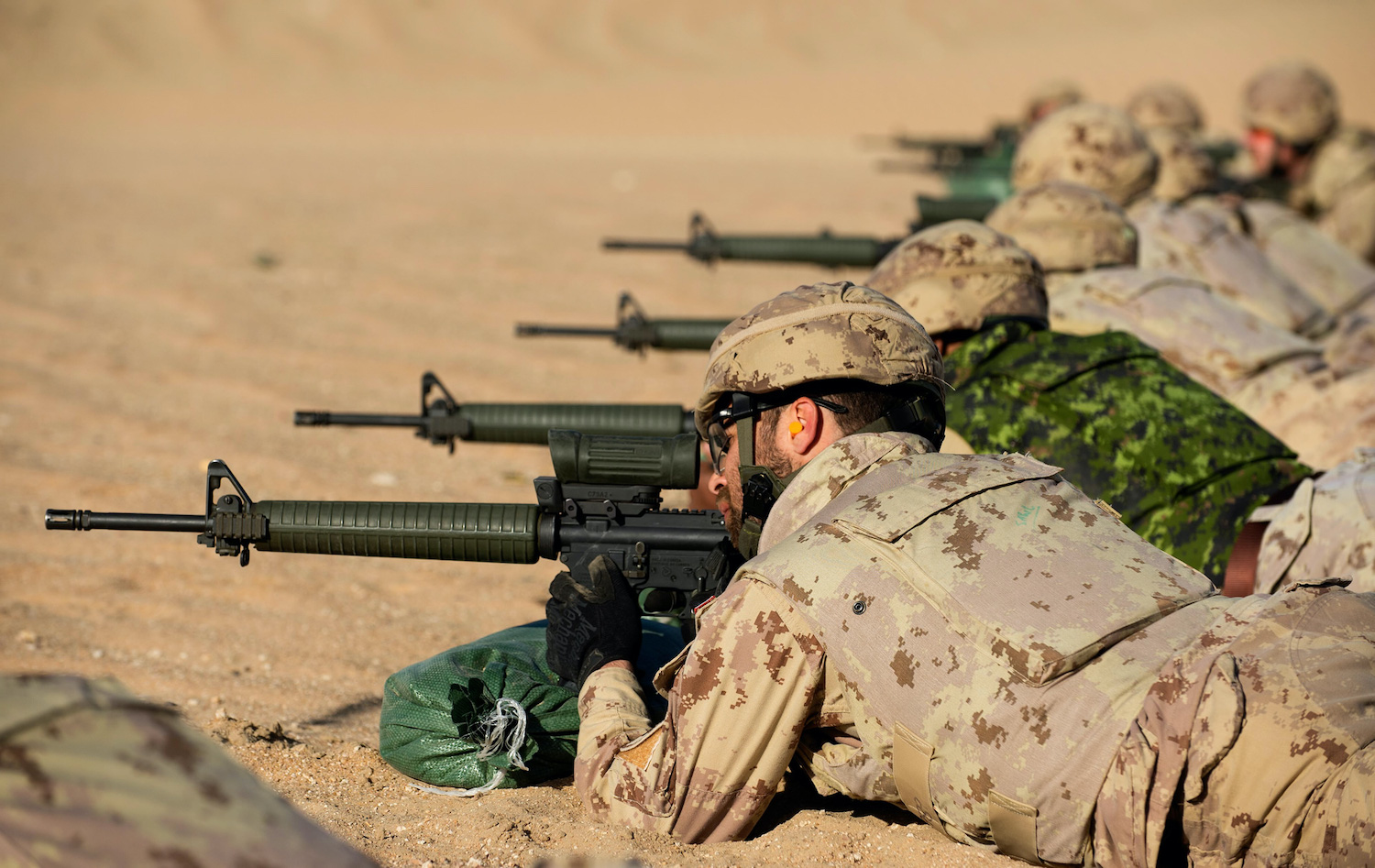Last Friday, Canadian Defence Minister Harjit S. Sajjan concluded a visit to the Middle East, where he met with top dignitaries and military personnel. The visit comes on the heels of the rising tension in the region.
In Kuwait, he met with Ahmad Mansour Al-Ahmad Al-Jaber Al-Sabah, the Deputy Prime Minister and Minister of Defense for Kuwait. Their discussion centered around the situation in Iraq and the region and about opportunities to increase regional peace and stability. Minister Sajjan expressed his thanks to the Kuwaiti government for their ongoing support to Canada’s operational support hub in the region.
During his visit, he also met with BGen Michel-Henri St-Louis and senior leadership of the Joint Task Force IMPACT.
Canada’s ambassador to Iraq, Ulric Shannon, along with MGen Jennie Carignan, Commander NATO Mission Iraq, and BGen Chris Ayotte, Combined Joint Task-Force-Operation Inherent Resolve briefed the minister about the current situation in Iraq. MGen Carignan is a member of the Canadian Armed Forces (CAF) and currently commands NATO Mission Iraq (NMI), a non-combat, advisory, and training mission that aims to assist Iraq in strengthening its military schools and institutions and advancing Security Sector Reform.
Minister Sajjan also met with King Abdullah of Jordan at NATO and later with Jordanian Chairman of the Joint Chiefs of Staff, MGen Yousef Al-Hnaity with whom he had a productive exchange on the ongoing regional situation, women, peace and security, and Canada’s continued cooperative relationship with Jordan. He visited the Jordan Border Road Project, which will increase the security and stability of Jordan along its northern border with Syria.
The minister also met with other members of the international community to discuss steps that can be taken toward de-escalation in the Middle East. While there, he met with the troops posted on Operation IMPACT in both Kuwait and Jordan.
Operation IMPACT is Canada’s contribution to the US-led Global Coalition against Daesh and NATO Mission Iraq (NMI) and has up to 850 CAF members deployed in four countries – Iraq, Jordan, Lebanon, and Kuwait. As part of this operation, the CAF provides training, advice, and assistance to Iraqi security forces. It also provides capacity building capabilities to regional forces, conducts air operations, and supports the Global Coalition with highly skilled personnel.
However, given recent developments in the region, some training activities in Iraq are currently paused as a precautionary measure in order to prioritize the safety of deployed personnel.
“Our focus remains on the safety of Canadian troops in the Middle East. When the situation allows, we will resume our training mission in Iraq to help counter Daesh,” said Minister Sajjan. “Meeting with partners in the region allows us to continue discussions regarding the next steps toward de-escalation while remaining focused on increasing peace and stability.”

